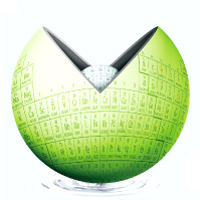
Published for geochemistry community from Geochemical Society of Japan.
Sources of atmospheric sulfur compounds
Geochemical Journal, Vol. 1, No. 4, P. 199-210, 1967
ABSTRACT
Sulfate samples from rain and snow water, collected in Japan and in U.S.A. have been studied isotopically in an attempt to determine the sources of atmospheric sulfur. δ34S values of the samples are 5 to 18 ‰ lighter than that of sea water sulfate. Based on these isotopic data, it is suggested that the most important sources of atmospheric sulfate are hydrogen sulfide derived from bacterial reduction of sulfate and SO2 from industrial activities. Sea spray sulfate is a minor contributor. In industrial sites, the sulfur in precipitation indicates depletion in 34S, viz. +3.2 to +7.3 ‰, in contrast to δ34S values in non-industrial sites, that vary from +12.3 to +19.0 ‰. It is suggested that the lighter isotopic composition of atmospheric sulfur may be explained by the contribution of light sulfur from sulfur bearing fuels through industrial burning.- Published : 1967
- Released on J-STAGE : -
- Received : 1967/10/11
- Accepted : -
- DOI : https://doi.org/10.2343/geochemj.1.199
- J-STAGE URL : https://www.jstage.jst.go.jp/article/geochemj1966/1/4/1_4_199/_article/-char/ja
- J-Online ISSN: 1880-5973
- Print ISSN : 0016-7002
- ISSN-L : 0016-7002
All Issues
- Vol.59, 2025
- Vol.58, 2024
- Vol.57, 2023
- Vol.56, 2022
- Vol.55, 2021
- Vol.54, 2020
- Vol.53, 2019
- Vol.52, 2018
- Vol.51, 2017
- Vol.50, 2016
- Vol.49, 2015
- Vol.48, 2014
- Vol.47, 2013
- Vol.46, 2012
- Vol.45, 2011
- Vol.44, 2010
- Vol.43, 2009
- Vol.42, 2008
- Vol.41, 2007
- Vol.40, 2006
- Vol.39, 2005
- Vol.38, 2004
- Vol.37, 2003
- Vol.36, 2002
- Vol.35, 2001
- Vol.34, 2000
- Vol.33, 1999
- Vol.32, 1998
- Vol.31, 1997
- Vol.30, 1996
- Vol.29, 1995
- Vol.28, 1994
- Vol.27, 1993
- Vol.26, 1992
- Vol.25, 1991
- Vol.24, 1990
- Vol.23, 1989
- Vol.22, 1988
- Vol.21, 1987
- Vol.20, 1986
- Vol.19, 1985-1986
- Vol.18, 1984
- Vol.17, 1983
- Vol.16, 1982
- Vol.15, 1981
- Vol.14, 1980
- Vol.13, 1979
- Vol.12, 1978
- Vol.11, 1977
- Vol.10, 1976
- Vol.9, 1975
- Vol.8, 1974
- Vol.7, 1973
- Vol.6, 1972-1973
- Vol.5, 1971
- Vol.4, 1970-1971
- Vol.3, 1969-1970
- Vol.2, 1968
- Vol.1, 1966-1967
Current Issue:
Stats:
Impact Factor: 1.6 (2024)
Submission to final decision: 9.6 weeks (2022)




